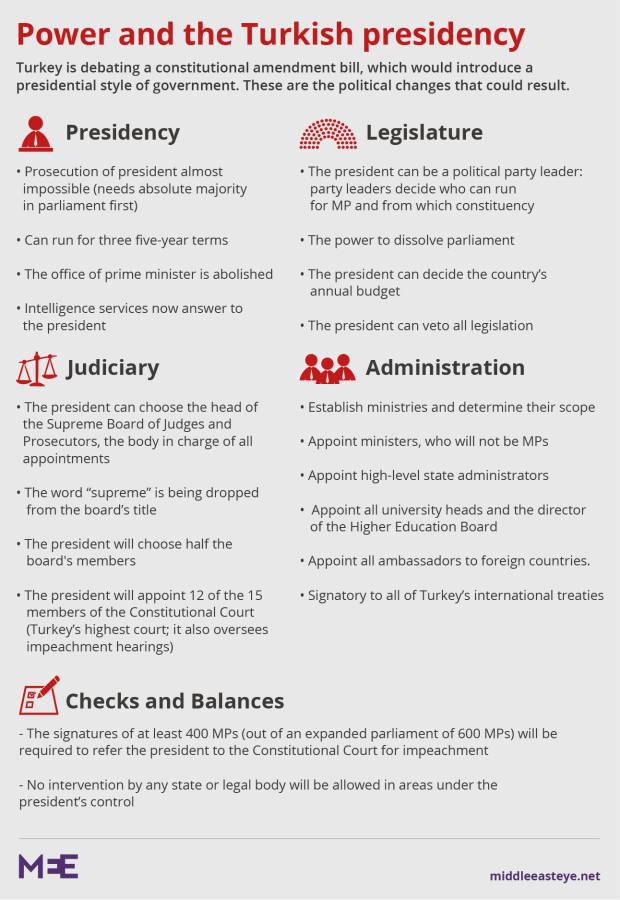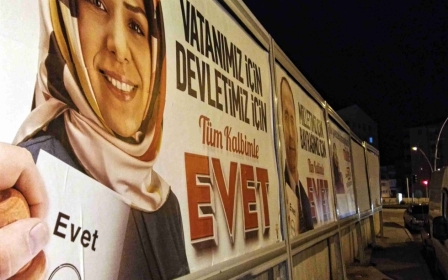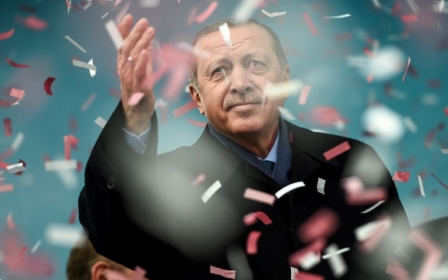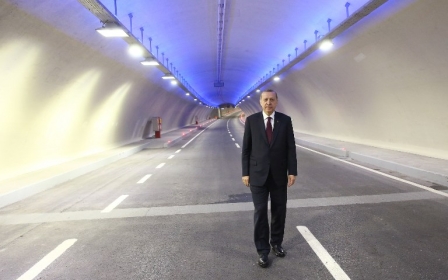Erdogan holds giant rally ahead of Turkish referendum
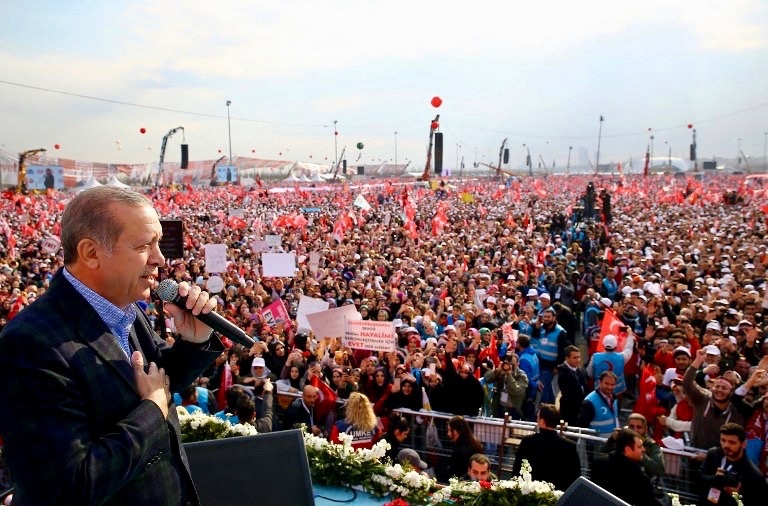
Tens of thousands packed one of Istanbul's biggest public spaces on Saturday as Turkish President Recep Tayyip Erdogan hosted a giant rally seeking votes in next week's referendum on enhancing his powers.
Lambasting Turkey's enemies and taking pot shots at his opponents, Erdogan said a Yes vote in the 16 April referendum would give the country more stability and power.
"On April 16, do you want to say 'Yes' to a strong Turkey?" Erdogan asked the crowd, who waved a sea of red and white crescent moon Turkish flags and roared back “Yes”.
Erdogan arrived by helicopter to cheers at the vast open ground in Istanbul's Yenikapi district, on the shores of the Sea of Marmara.
It was here last August that he held a mass rally calling for national solidarity in the wake of the failed July coup blamed on the US-based preacher Fethullah Gulen, and Erdogan clearly wanted to capture the spirit of that day.
Erdogan said the likes of Gulen, who denies being behind the coup, and the outlawed Kurdistan Workers Party (PKK) wanted to see a No vote.
And he charged that No voters were also against his bid to transform Turkey through modern infrastructure projects such as bridges and tunnels.
"They said 'No' to the bridges. They say 'No' to a modern Turkey," he roared, prowling around a walkway that extended from the stage like at a rock concert.
Analysts see the referendum as tightly contested, despite the domination of the Yes campaign in the media.
Still, time allocated to the different parties on television shows Erdogan and his ruling AKP (Justice and Development Party) receiving 4,113 minutes of airtime up to 30 March and the CHP (Republican Peoples' Party), which received 25 percent of the vote in the last election, getting just 216 minutes, the Guardian noted.This is still better than the mainly Kurdish HDP (Peoples’ Democratic Party), which won more than 10 percent of the vote and got just one minute of airtime, the Guardian said, adding that 12 of its 59 MPs are in jail and expect long sentences.
If approved, the new system will see the scrapping of the post of prime minister, the creation of vice presidents and the empowering of the president to appoint ministers.
On the other Asian side of the city across the Bosphorus, the pro-Kurdish HDP held a rally pushing a No vote
The changes will also allow the president to be affiliated with a party, allowing Erdogan to restore his ties with the AKP that he co-founded and helped sweep to power in 2002.
Supporters say the new system will create an efficient US-style structure, but critics argue the lack of checks-and-balances risks handing Erdogan one-man rule.
Wearing headbands with "Tayyip Erdogan - commander in chief" written on them and some even sporting Erdogan face masks, supporters said giving the president greater powers was essential to Turkey's development.
"We want Turkey to grow, we want Recep Tayyip Erdogan to remain our leader. Without him Turkey is not herself," said Yes supporter Nahil Unal.
Erdogan also prompted boos by mentioning his opponent, the leader of the secular CHP, Kemal Kilicdaroglu, who claimed this week that the failed putsch was a "controlled coup" which the government knew about in advance.
Analysts say that the outcome in Turkey's largest city Istanbul - whose diversity is fairly representative of the hugely complex country - will be critical to the result of the referendum.
The No campaign suffers from a lack of a clear figurehead and vastly fewer resources but is hoping to rally substantial numbers of secularists, Kurds and nationalists to its cause.
On the other Asian side of the city across the Bosphorus, the pro-Kurdish HDP held a rally pushing a No vote.
Both the party's co-leaders are jailed on charges of backing the PKK, which the party argues is punishment for daring to oppose the presidential system.
Senior HDP lawmaker Sirri Sureyya Onder told the rally: "In this referendum our co-leaders, our MPs, our youth, our friends are facing the greatest oppression in our history."
Middle East Eye propose une couverture et une analyse indépendantes et incomparables du Moyen-Orient, de l’Afrique du Nord et d’autres régions du monde. Pour en savoir plus sur la reprise de ce contenu et les frais qui s’appliquent, veuillez remplir ce formulaire [en anglais]. Pour en savoir plus sur MEE, cliquez ici [en anglais].


